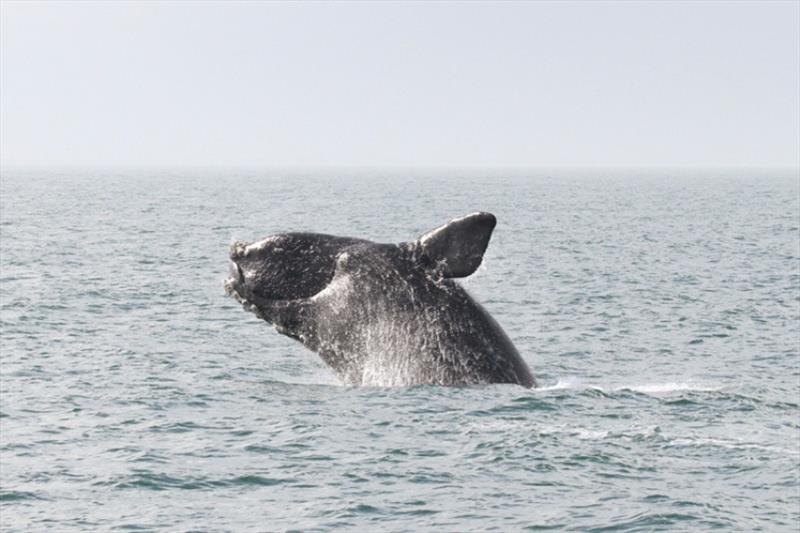
NOAA scientists receive Climate Adaptation Award
by NOAA Fisheries 13 Sep 2018 14:06 UTC

NOAA scientists receive Climate Adaptation Award © NOAA Fisheries
The ocean's most iconic residents--whales, dolphins, porpoises, seals, and sea lions--are becoming increasingly vulnerable to the impacts of changing climate and ocean conditions.
Today, a team of NOAA Fisheries scientists is being recognized for developing the nation's first framework to assess the climate vulnerability of marine mammals to help coastal managers, researchers, and others safeguard these animals in a changing world.
During the past two years, the team coordinated with partners to use this new framework to assess the vulnerability of 108 species of marine mammals in the Atlantic Ocean, Gulf of Mexico, and Caribbean Sea based on their exposure, sensitivity, or capacity to adapt to changing conditions. The scientists examined traits such as diet, migration, and reproduction rates to determine how sensitive species may be to projected future changes in ocean conditions such as sea surface temperature, salinity, and ocean chemistry.
The team also identified many key information gaps for species in the assessment study. This information will help guide future research on these important species.
"I applaud the Marine Mammal Climate Vulnerability Team on this prestigious award," said NOAA Fisheries Chief Science Advisor Cisco Werner. "This foundational work will help NOAA and partners better understand and respond to the climate-related stressors facing marine mammals."
Established in 2016, the Climate Adaptation Leadership Award recognizes exemplary leadership by individuals and organizations who further resilience and adaptation of America's fish, wildlife, and plants to changing climate and oceans. The Award Program is sponsored by the Association of Fish and Wildlife Agencies and other partners. NOAA Fisheries is one of six recipients of today's awards. Read more about the honorees and honorable mentions.